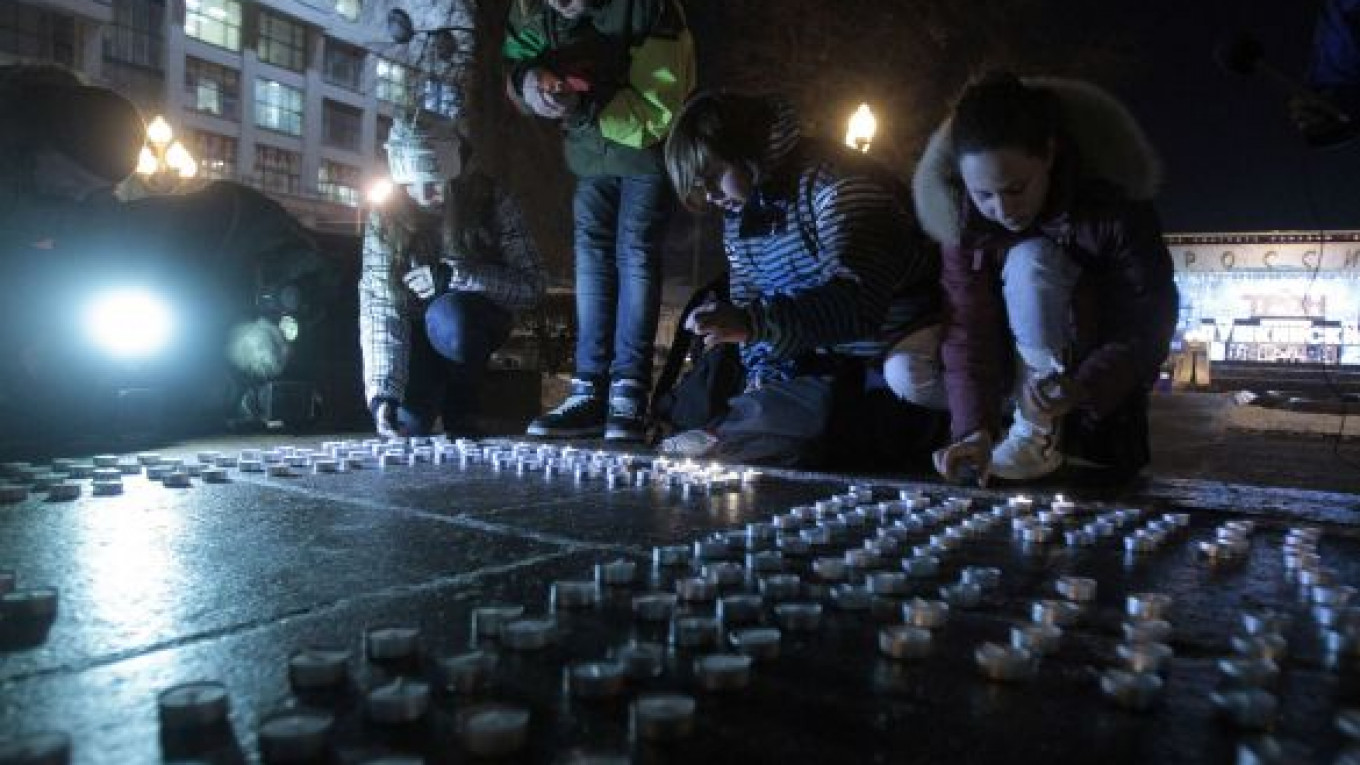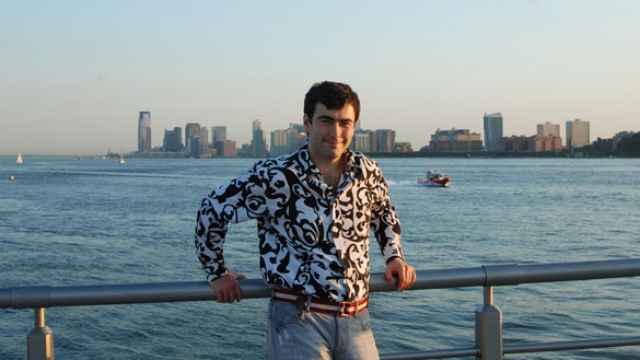All eyes will be on a Moscow court on Wednesday as it convenes to start reading the verdict in the second trial against jailed oil tycoon Mikhail Khodorkovsky and his business partner Platon Lebedev.
The two stand accused of stealing 218 million tons of oil worth $27 billion from their company Yukos from 1998 to 2003.
Their lawyers have labeled the accusations ridiculous, pointing out that this amounts to all the oil that Yukos produced in those years.
Defense lawyers said that while it should be clear by the end of the day Wednesday whether the verdict would be guilty or not guilty, the length of a possible prison term might only be known days later.
"Nobody knows how long the reading of the verdict will take. There is no limit to the number of extra [court] dates that can be set," Lebedev's lawyer Yelena Liptser said by telephone.
In the first trial in 2005, when the two men were accused of tax evasion, the court took 12 grueling days to reach the sentencing stage.
Liptser said all that could be expected from Khamovnichesky District Court Judge Viktor Danilkin would be "a signal" of whether the verdict would be guilty or not guilty.
Prosecutors have demanded a 14-year sentence, which may add up to seven years to the eight-year prison terms that Khodorkovsky and Lebedev are currently serving.
Many observers expect a guilty verdict.
Khodorkovsky maintains that the charges against him are politically motivated and are orchestrated by former President Vladimir Putin.
In his final statement on Nov. 2, he called the trial a landmark event for the country and a test of President Dmitry Medvedev's pledge to modernize the country and fight “legal nihilism.”
Khodorkovsky's supporters stepped up public pressure on the Kremlin this week. On Tuesday, they published an open letter to Medvedev signed by 47 lawmakers from Europe and the United States asking him to end the "ongoing persecution" of Khodorkovsky and Lebedev.
The case has "shaken confidence in the Russian legal system and in your strong will to uphold the Russian Constitution," says the letter, which was initiated by Malcolm Rifkind, a former British defense and foreign secretary, and published on Khodorkovky's web site Khodorkovskycenter.com.
One of the co-signatories, German lawmaker Marina Schuster, who oversees human rights issues for the Free Democrats in the Bundestag, said Tuesday that the verdict was being closely followed in Europe.
"We made it clear that it is a test case for the Kremlin's seriousness in tackling the legal nihilism as identified by President Medvedev," she said by telephone from Berlin.
Kremlin spokesman Alexei Pavlov said Tuesday that he could not comment on the letter because he had no information that had been formally received.
Schuster said the Russian court system was lacking, noting that more than 30,000 cases against Russia are waiting to be heard by the European Court of Human Rights in Strasbourg.
"This gives a realistic picture of the state of the Russian judiciary," she said.
She also stressed that the Khodorkovsky case was vital for foreign investors, who have been courted with new impetus under Medvedev.
Markus Löning, the German government's ombudsman and also a member of the Free Democrats, late on Monday awarded the Rainer Hildebrandt Medal to Khodorkovsky. The prize, founded by the Berlin Wall Museum, was given to Khodorkovsky's mother, Marina.
On Tuesday, Jerzy Buzek, the speaker of the European Parliament, expressed his support for Marina Khodorkovskaya during a meeting in Strasbourg.
Khodorkovsky's case is "an emblematic symbol of major problems of the rule of law, legal nihilism and human rights in today's Russia," Buzek said in a statement on his web site.
European Parliament lawmakers, in what they described as a mere coincidence, will hold talks with a delegation from the State Duma and the Federation Council in Strasbourg on Wednesday and Thursday.
Khodorkovsky's case will certainly be raised at the EU-Russia Parliamentary Cooperation Committee, said Bart Staes, a lawmaker for the Belgian Green party.
"We will use the opportunity to talk to [the Russians] in a friendly and straightforward way," he said by telephone.
The head of the Russian delegation, United Russia Duma Deputy Andrei Klimov, said that while he expected the Europeans to raise the issue, he had little understanding for them.
"These people usually come and do not listen to our arguments that we have proper courts," he said by telephone just after arriving in Strasbourg.
He added that he thought Khodorkovsky should be found guilty, saying, "Personally, I think he is a criminal."
Klimov stressed that Khodorkovsky should not disrupt the parliamentary talks, which he said should focus on the "modernization partnership" between the European Union and Russia.
But Schuster, the German lawmaker, pointed out that the Khodorkovsky case was at the heart of that much-talked about partnership.
"Modernization is not just about infrastructure, it is just as much about reforming the judiciary, fighting corruption and ending lawlessness," she said.
A Message from The Moscow Times:
Dear readers,
We are facing unprecedented challenges. Russia's Prosecutor General's Office has designated The Moscow Times as an "undesirable" organization, criminalizing our work and putting our staff at risk of prosecution. This follows our earlier unjust labeling as a "foreign agent."
These actions are direct attempts to silence independent journalism in Russia. The authorities claim our work "discredits the decisions of the Russian leadership." We see things differently: we strive to provide accurate, unbiased reporting on Russia.
We, the journalists of The Moscow Times, refuse to be silenced. But to continue our work, we need your help.
Your support, no matter how small, makes a world of difference. If you can, please support us monthly starting from just $2. It's quick to set up, and every contribution makes a significant impact.
By supporting The Moscow Times, you're defending open, independent journalism in the face of repression. Thank you for standing with us.
Remind me later.







